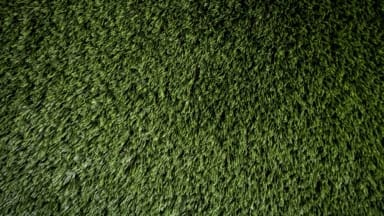
Published by the Advertising Standards Authority (ASA), the ruling reported that Easigrass failed to provide evidence their artificial Kensington Eco grass range was eco-friendly.
The ruling related to a Facebook post published by Easigrass in June 2023 and on their website in October 2023. According to ASA, the company’s webpage featured the text “While installing a synthetic lawn is a great alternative to natural grass, many still question its environmental impact. Thankfully it offers a range of environmental benefits that include reducing water usages and the use of harmful pesticides, but it doesn’t stop there. Your artificial grass offcuts provide a fantastic opportunity for you to help the environment […] This is a great way to utilise your offcuts while creating an eye-catching feature wall for your garden that ticks all the environmental boxes.”
The claims that the range was ‘fully recyclable’, ‘offers a range of environmental benefits’, and ‘ticks all the environmental boxes’ were not substantiated. The ruling noted “As we were not provided with sufficient evidence of the recyclable nature of the coating, and because of the lack of existing UK infrastructure to process the product, we concluded the ad was misleading”. ASA also said the company’s green claims failed to demonstrate that artificial grass had a positive impact on the environment across its full lifecycle. The advertising watchdog also noted that the product would have a “detrimental impact on biodiversity”, as it would be used to replace real grass.
Easigrass said that their Kensington Eco range had an alternative backing, which enabled the product to be completely recyclable. The company said they worked with three recycling centres in Germany, Amsterdam and Denmark that offered mechanical recycling, and that process enabled them to reuse polymer materials. For contractual reasons, however, they were unable to provide further details of the full recycling process. They also said that there was a recycling centre in Scotland, where UK-based consumers could recycle ‘Kensington Eco Grass’ independently. They intended to be able to offer a recycling service to all customers in the future, either by running an in-house recycling facility, or to have an agreement in place with the main recycling centre in the UK. However, they explained that, in line with the product’s warranty, they didn’t expect consumers would need to recycle the product until 2033, and by that time, the recycling service would be in place.
The adverts are not permitted to appear in their current form, as ASA confirmed “We told Easigrass (Distribution) Ltd to ensure their marketing communications did not mislead as to the ease of the recycling of their products and did not imply their products were environmentally friendly if that was not the case.”
Easigrass explained that, because the Kensington ECO Range could be fully recycled, the product was more environmentally friendly than other traditional artificial grasses that couldn’t be recycled. Nonetheless, the company has confirmed that they would remove the word ‘Eco’ from the product name, and the wording ‘recycling’ and ‘ticks all environmental boxes’ from the advert.
In March 2023, the Society of Garden Designers (SGD) launched the ‘Say No to Plastic Grass & Plants’ campaign to raise awareness of their extreme environmental damage. Supported by the RHS and the Landscape Institute, the SGD campaign highlighted that plastic grass & plants destroy wildlife by removing crucial natural habitats; cause plastic pollution, leak micro-plastics into waterways, cause flooding, contribute to urban heat islands due to the amount of warmth they retain and contribute to greenhouse gas emissions in their production.
